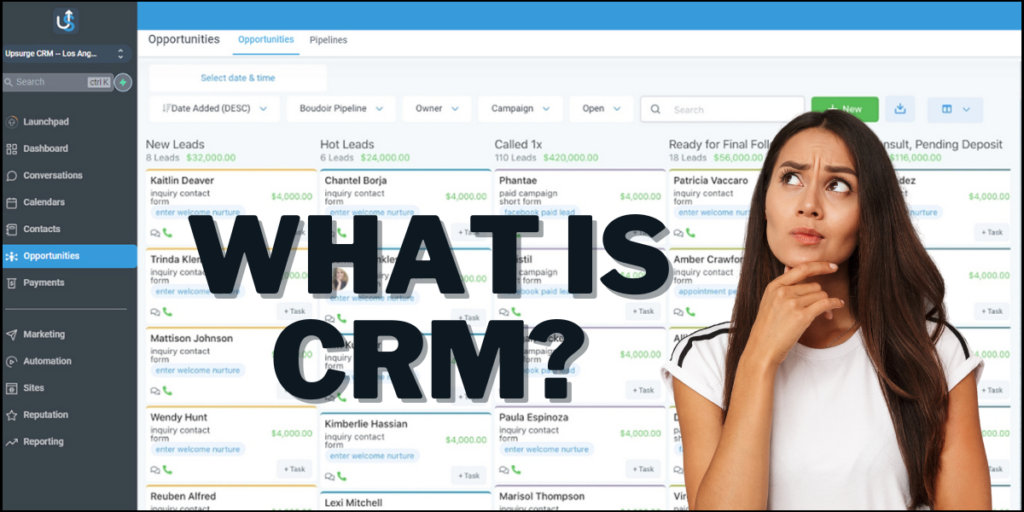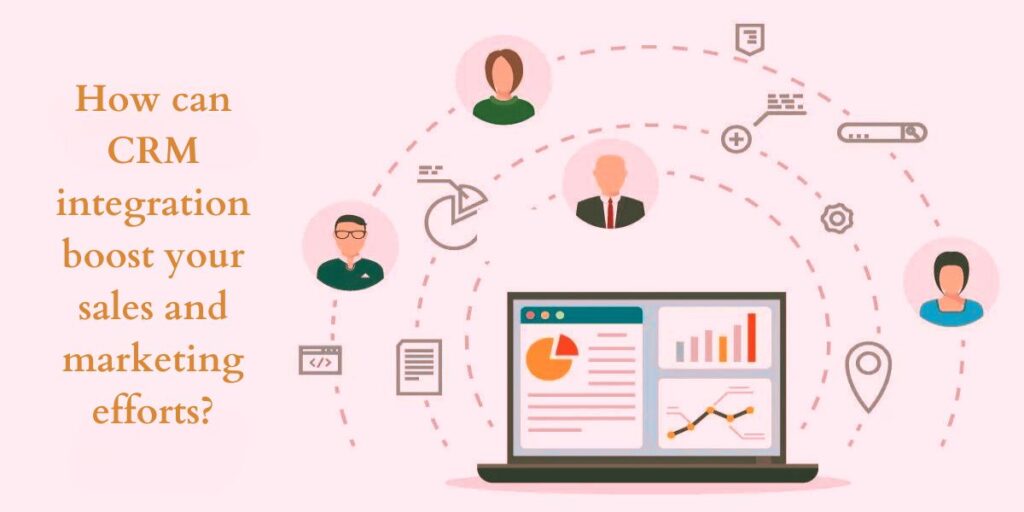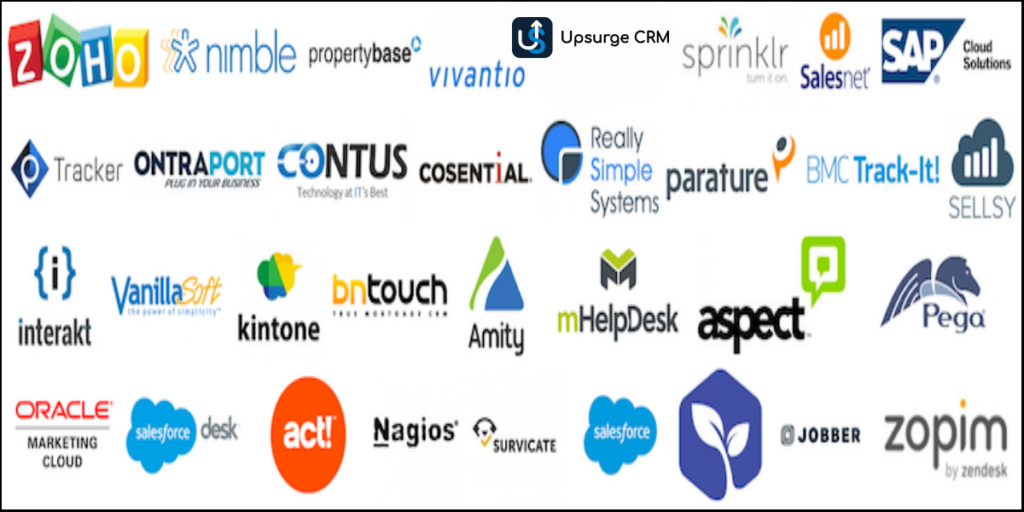
In the highly competitive world of business, the ability to effectively manage leads and convert them into revenue is essential for success. One tool that has revolutionized the way companies handle their sales processes is a Customer Relationship Management (CRM) system. A CRM system acts as a centralized hub for storing and managing customer information, allowing sales teams to effectively nurture leads and guide them through the sales funnel. From initial contact to final sale, a CRM system provides valuable insights and automation tools that supercharge the sales process.
This article explores the various ways in which a CRM system can enhance a company’s sales funnel, ultimately leading to increased revenue and business growth. Whether it’s tracking leads, managing customer interactions, or analyzing sales data, a CRM system plays a crucial role in streamlining sales processes and improving overall efficiency. As technology continues to advance, businesses that embrace CRM technology will have a significant advantage in today’s competitive market.

Customer Relationship Management (CRM) is a powerful tool that has the ability to revolutionize your sales process. In today’s competitive business landscape, it is more important than ever to have a strong understanding of your customer’s needs and preferences in order to successfully sell your products or services. That’s where CRM comes in.
CRM is a technology that helps businesses manage and analyze customer interactions and data throughout the sales lifecycle. It allows companies to centralize customer information, track sales activity, and automate various processes, enabling sales teams to effectively engage with customers and close deals. With CRM, businesses can gain a comprehensive view of their customers, including their purchasing history, preferences, and contact information, enabling them to personalize their approach and deliver a tailored customer experience.
From streamlining lead management to improving customer retention, CRM can be a game-changer for businesses looking to boost their sales performance and stay ahead of the competition. So, let’s explore how CRM can help take your sales to the next level.
Implementing CRM in your sales strategy brings a multitude of benefits:
In today’s highly competitive business landscape, optimizing the sales pipeline is crucial for any organization aiming to achieve success. The sales pipeline refers to the series of steps a potential customer goes through before making a purchase, starting from the initial contact to closing the deal. It is essential for businesses to efficiently manage this process to maximize revenue and fuel growth.

CRM software not only helps in managing customer relationships but also plays a vital role in optimizing the sales pipeline. By providing a centralized database of customer information, CRM allows businesses to track and analyze customer interactions, preferences, and purchase history. This data enables sales teams to identify potential leads, track their progress, and strategically move them through the pipeline to convert them into loyal customers.
Additionally, CRM helps sales teams streamline their processes, improve communication, and enhance collaboration, resulting in a more efficient and effective sales pipeline. By harnessing the power of CRM, organizations can ensure they are effectively managing their sales pipeline, thereby increasing sales productivity, improving customer satisfaction, and ultimately driving revenue growth.

One of the key reasons why a clear sales funnel is important is that it allows companies to understand their customers better. By mapping out each stage of the customer journey, businesses can identify potential pain points, optimize their marketing strategies, and tailor their sales efforts accordingly. Additionally, a sales funnel helps companies prioritize their leads and allocate resources effectively. It enables businesses to focus their time and energy on high-quality leads that are more likely to convert, increasing the chances of closing a sale.
Furthermore, a clear sales funnel provides a framework for analyzing and improving the sales process. By tracking the conversion rates at each stage, companies can identify bottlenecks and areas for improvement. This allows businesses to constantly refine their strategies and optimize the customer experience, leading to increased sales and customer satisfaction.
In conclusion, a clear sales funnel is not just a helpful tool; it is a crucial element for business success. By understanding the importance of a clear sales funnel and implementing it effectively, companies can enhance their sales efforts, boost revenue, and build long-term customer relationships.

Creating an effective sales funnel starts with understanding your target audience and their pain points. By knowing your ideal customer profile, you can tailor your marketing & sales efforts to attract & engage probable customers who are most likely to convert. A well-designed sales funnel incorporates lead capture, lead nurturing, and a clear path to purchase. It’s essential to continuously monitor and analyze your sales funnel to determine areas for improvement and optimize your strategies.
CRM software is an invaluable tool for tracking and analyzing your sales funnel. It allows you to monitor the progress of leads at each stage and identify any bottlenecks or gaps in the process. With CRM analytics, you can gain insights into lead quality, conversion rates, and the effectiveness of your marketing campaigns. This data-driven method lets you make data-backed decisions, refine your sales strategies, and drive revenue growth.
CRM automation has the potential to revolutionize the way companies interact with their customers. By automating various tasks like lead nurturing, email marketing, and follow-up communications, businesses can save time and effort while significantly improving their sales process. With CRM automation, companies can create personalized and highly targeted campaigns that cater to individual customer preferences, resulting in increased conversion rates and customer satisfaction.
Moreover, CRM automation enables companies to effectively track and analyze their sales pipeline, providing valuable insights into customer behavior and preferences. This data-driven approach allows businesses to make informed decisions and optimize their sales strategies to maximize revenue generation. With the right CRM automation tools and strategies in place, companies can stay ahead of the competition and successfully navigate the ever-evolving sales landscape.

Automation has revolutionized various industries, and sales and marketing are no exception. The role of automation in sales and marketing has become increasingly crucial in today’s digital age. With the advancement of technology, businesses now have access to incredible tools that can streamline processes, improve productivity, and enhance customer experiences.
Furthermore, automation enables better targeting and personalization of marketing efforts. With the help of data analytics and machine learning, businesses can gather and analyze customer data to create highly targeted and personalized messages.
CRM automation accelerates the sales process and improves efficiency. By implementing automated workflows, businesses can ensure that leads are properly nurtured and followed up on. Tasks such as sending personalized emails, scheduling follow-up calls, and assigning leads to sales reps can be automated, saving valuable time and reducing the risk of human error.
Additionally, CRM automation provides real-time notifications and alerts, enabling sales teams to respond promptly to leads and improve their overall responsiveness which can help to develop a Winning Marketing Strategy tailored to your target audience.
Automating and optimizing your sales workflow with CRM involves several steps:

Integrating CRM with marketing tools is essential for streamlining your sales and marketing efforts. By seamlessly integrating these systems, you can ensure that customer data is synchronized and accessible across multiple platforms. This enables your sales & marketing teams to collaborate with real-time insights into lead behavior and engagement. Integration also allows efficient lead handoff from marketing to sales, ensuring a seamless transition and improved conversion rates.
CRM integration is becoming an increasingly popular strategy for businesses looking to enhance their lead generation efforts. By integrating a customer relationship management (CRM) system with other marketing and sales tools, organizations can maximize their lead generation success.
The key to effective lead generation lies in identifying potential customers and nurturing them throughout the sales cycle. CRM integration plays a crucial role in this process by providing businesses with a centralized platform to track and manage customer interactions and preferences. It allows businesses to collect, analyze, and interpret customer data in real-time, enabling them to tailor their marketing and sales strategies to meet their customer’s needs.
Integrating CRM to maximize lead gen success is an essential strategy for businesses looking to stay competitive in today’s market. By leveraging CRM integration, organizations can effectively collect, analyze, and manage customer data, resulting in better lead generation and increased revenue.
A well-integrated CRM system can significantly impact an organization’s sales conversions. But how do you measure the success of CRM integration in driving those conversions?
Measuring the success of CRM integration goes beyond just analyzing sales numbers. It involves evaluating several key metrics to gain a comprehensive understanding of how well the integrated system is performing. These metrics can include customer acquisition, retention rates, average deal size, customer satisfaction levels, and sales cycle length.
By tracking and analyzing these metrics, businesses can identify the areas where the CRM integration is successful and further optimize their processes. This data-driven approach enables organizations to make informed decisions and implement targeted strategies to improve sales conversions and overall revenue generation.

When selecting a CRM software to supercharge your sales, it’s important to consider key features:
When selecting the right CRM software for your business, consider the following tips:
In conclusion, the power of Customer Relationship Management (CRM) in supercharging your sales funnel cannot be underestimated. It transforms how you understand, engage, and convert leads into revenue. To embark on this journey of success, consider integrating CRM into your sales strategy. With its robust features, seamless automation, and insightful analytics, CRM can be your partner in achieving sales excellence.

The Real Benefits of Contact Management with CRM for Collecting Customer Data Managing and leveraging customer information has become a foundational aspect of success…
Can a CRM Really Automate My Sales Follow-Ups and Boost My Small Business Revenue? Small businesses face increasing pressure to maintain consistent communication with…
Best CRM Software for Sales Prospecting: Transform Your Sales Prospecting Struggling to turn cold leads into paying customers? You’re not alone. In today’s competitive…